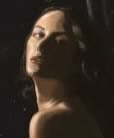FigwitBook Club Moderator & Misty Mountain MonsterPosts: 1966 Send Message |
|
| legolas_thranduilion500 |
|
| RubySandybanks |
|
| Fearian |
|
| RubySandybanks |
|
| LadyEowyn_Of_Rohan |
|
| RubySandybanks |
|
| RubySandybanks |
|
|
|
|
|
FigwitBook Club Moderator & Misty Mountain MonsterPosts: 1966 Send Message |
|
atalante_starScholar of Imladris and Theodens LadyPosts: 1365 Send Message |
|
FigwitBook Club Moderator & Misty Mountain MonsterPosts: 1966 Send Message |
|
atalante_starScholar of Imladris and Theodens LadyPosts: 1365 Send Message |
|
FigwitBook Club Moderator & Misty Mountain MonsterPosts: 1966 Send Message |
|
atalante_starScholar of Imladris and Theodens LadyPosts: 1365 Send Message |
|
| LadyEowyn_Of_Rohan |
|
FigwitBook Club Moderator & Misty Mountain MonsterPosts: 1966 Send Message |
|
atalante_starScholar of Imladris and Theodens LadyPosts: 1365 Send Message |
|
|
|
| LadyEowyn_Of_Rohan |
|
FigwitBook Club Moderator & Misty Mountain MonsterPosts: 1966 Send Message |
|
atalante_starScholar of Imladris and Theodens LadyPosts: 1365 Send Message |
|
FigwitBook Club Moderator & Misty Mountain MonsterPosts: 1966 Send Message |
|
 Author
Author








 5.V. The Ride of the Rohirrim & 5.VI. The Battle of the Pelennor Fields
5.V. The Ride of the Rohirrim & 5.VI. The Battle of the Pelennor Fields



 Yes, I like Éowyn better in this chapter. She was suicidal and misguided, and shouldn't have ridden to the Pelennor. But when she saw Théoden fall, she was the only one with the courage to remain standing and even face the Witch-king. [quote[ Yet one stood there still: Dernhelm the young, faithful beyond fear; and he wept, for he had loved his lord as a father. Right through the charge Merry had been borne unharmed by him, until the Shadow came; and the Windfola had thrown them in his terror, and now ran wild upon the plain...
Yes, I like Éowyn better in this chapter. She was suicidal and misguided, and shouldn't have ridden to the Pelennor. But when she saw Théoden fall, she was the only one with the courage to remain standing and even face the Witch-king. [quote[ Yet one stood there still: Dernhelm the young, faithful beyond fear; and he wept, for he had loved his lord as a father. Right through the charge Merry had been borne unharmed by him, until the Shadow came; and the Windfola had thrown them in his terror, and now ran wild upon the plain...

